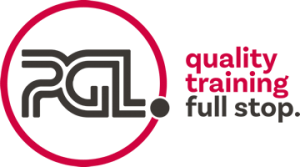What Happens When You Hit Underground Utilities?
National Safe Digging Week 2024 aims to emphasise the importance of safe digging practices. Whether you are in Streetworks or any type of digging or excavation, understanding the serious consequences of hitting underground utilities is crucial.
1. The Consequences of Striking Underground Utilities
Accidentally hitting underground utilities such as gas pipes, water mains, electrical cables, or phone lines can lead to severe outcomes. While these are commonly known hazards, it’s important to note that other utilities and pipelines may also be present. These can include fiber optic cables, sewer lines, and other telecommunications infrastructure. Therefore, always exercise caution and consider the possibility of these additional utilities when undertaking any digging or construction work.
The risks associated with damaging these utilities are significant:
- Safety Risks: Hitting a gas pipe can cause explosions; electrical cables can result in shocks or fires, and breaking water mains can cause flooding, posing risks to both workers and the public.
- Service Disruptions: Damaging utilities can disrupt services for entire neighbourhoods or business areas, affecting many people and businesses, including critical facilities like hospitals.
- Financial Costs: Repairing damaged utilities is costly, with potential fines and legal expenses. Project delays due to damage can also escalate costs significantly.
2. The Importance of Proper Training
Proper training is crucial to prevent significant issues stemming from damage to underground utilities. At PGL Midlands, we provide essential courses such as EUSR Category 1, Category 2, Category 1 & 2 Combined, and Streetworks (NRSWA) to promote safe digging practices. These courses are offered at our new technical centre located in Birmingham City Centre, which features a streetworks area designed to simulate a public footway and replicate scenarios involving underground utilities.
Participants gain practical skills in excavation, backfilling, repair work, safety protocols, and the safe detection and excavation of underground utilities.
3. Streetworks Training
Our Streetworks training adheres to the regulations of the New Roads and Street Works Act (NRSWA) for safe work near underground utilities. Learners learn how to comply with regulations and use best practices to ensure safety and efficiency.
4. EUSR CAT 1 and CAT 2 Training
Our EUSR CAT 1 and CAT 2 courses teach effective use of Cable Avoidance Tools (CAT) and Signal Generators (Genny). These tools are vital for detecting underground utilities before excavation, helping to prevent accidents and ensure safe work practices.
As part of our commitment to National Safe Digging Week, we prioritise offering training that promotes safe and effective digging practices.
5. Benefits of Effective Training
- Preventing Accidents: Trained workers can identify and avoid underground hazards, reducing accidents and injuries.
- Saving Money: Avoiding damage lowers repair costs and prevents project delays, safeguarding budgets.
- Following Regulations: Properly trained workers ensure all digging complies with local rules, avoiding legal issues.
- Enhancing Safety: Well-trained workers contribute to community safety by preventing disruptions to essential services.
Conclusion
National Safe Digging Week 2024 underscores the importance of safe digging practices for our communities and infrastructure. Training initiatives such as Streetworks and EUSR CAT 1 and CAT 2, along with the proper use of CAT and Genny equipment, play a crucial role in accident prevention and cost savings. Investing in this training is essential for the safety and efficiency of any digging project.
Watch our video highlighting the Top 10 Safe to Dig Steps – Utilities, emphasising the critical importance of proper training and safe practices when digging near utilities.
